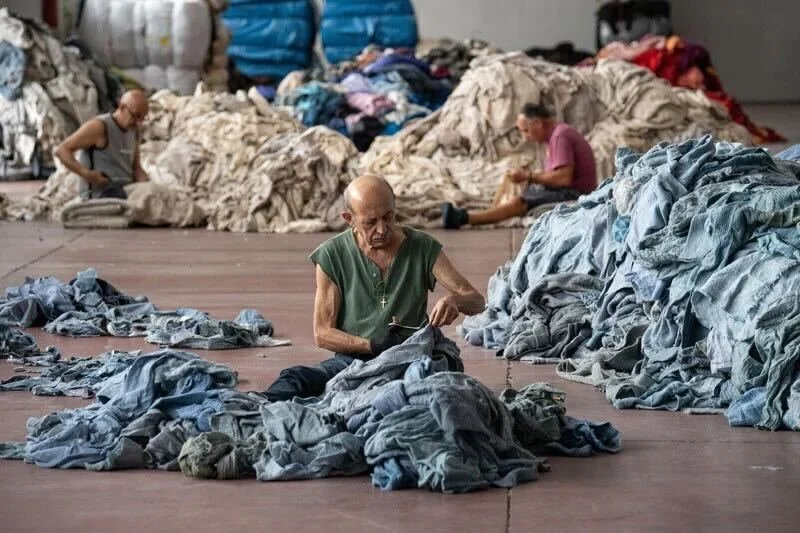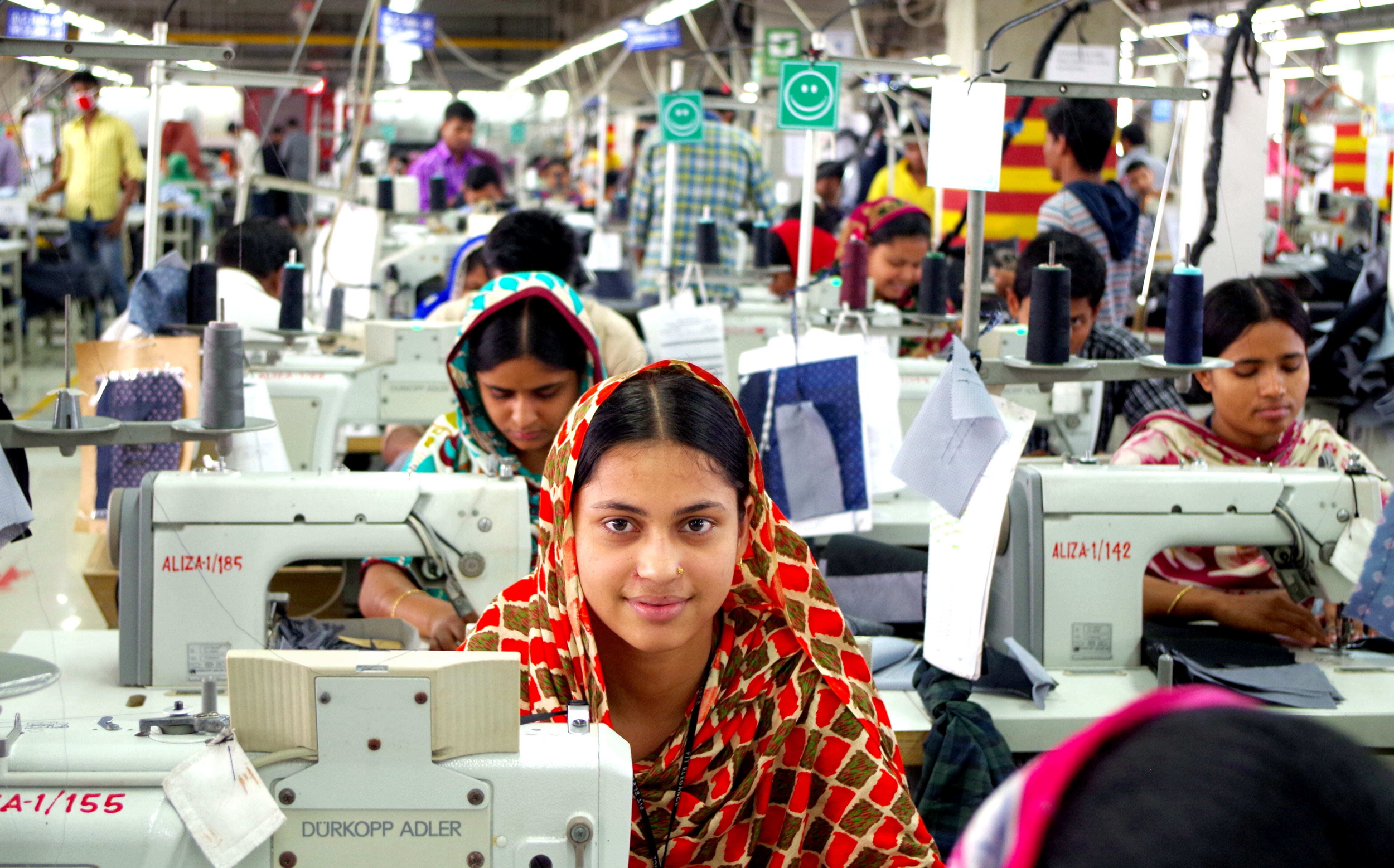10 sustainable fashion platforms
March 27, 2023
The word sustainability, in the great field of fashion, is increasingly recurring and being discussed. After the striking discoveries of recent years on the environmental impact of the textile industry, more and more brands are taking initiatives to reduce the environmental and social impact of their productions and promote a rapid 'green turn'.
From big brands such as Prada, Gucci, Diesel, Alexander McQueen, who have decided to open a special channel for vintage or Valentino which is worth analyzing in more detail: in fact the maison has selected 7 vintage boutiques around the world, in Milan, Paris, Seoul, Los Angeles, London, New York and Tokyo, in which to host its new vintage section. The initiative invites the public to participate in a new circular system in which Valentino garments from the past brought back to one of the locations are exchanged for a shopping voucher for clothes from the current collection.
But how does it work? Once your vintage garments have been selected and brought to the venue for evaluation, the vintage store will issue a credit corresponding to the value of the accepted garments, which can then be used in selected Valentino Boutiques.
To the ever-increasing interest of the Z generation in second-hand, there are so many proposals that are changing the face of the fashion world, and getting one's bearings can be complex: it is not always easy to assess the ethicality of a brand and the concept of sustainability can be easily misunderstood amidst the sudden growth of this market. This is why we have compiled a list of the most essential platforms to help you get your bearings in this world.
When talking about platforms for selling clothes, it is now impossible not to mention the most popular second-hand sales e-commerce ones, which have become part of the everyday shopping routine among youngsters, and not only, as well as a sustainable alternative to the production of new clothes.
VINTED
Vinted, founded in 2008 and based in Lithuania is now available in many European countries, it is an online platform that allows users to buy and sell used clothes. Users can create a profile and post ads for sale, search for products to buy, negotiate prices and leave reviews on products and sellers. When it comes to second-hand clothes, i.e. items resold regardless of age and style, vinted has no competition. With 45 million members, the number of items on the platform guarantees that anything can be found.
DEPOP
Depop was born in Milan in 2011 from an idea of Simon Beckermenn; it is a social shopping platform that allows users to buy and sell clothing, accessories, vintage items and much more. Its global community of buyers and sellers offers a wide range of products, from unique clothing items to rare vintage pieces that cannot be found elsewhere. Although the items sold on Depop are second-hand, the platform focuses on what is defined as vintage, i.e. garments that are at least 20 years old.
VESTIAIRE COLLECTIVE
Vestiaire Collective, a French company founded in October 2009, is an online shopping site specialising in the sale of high-quality second-hand luxury clothing and accessories. The platform offers a wide range of products, from clothing to jewellery, from handbags to wallets, all carefully selected and authenticated to ensure the highest quality and safety for buyers. The platform has also recently banned the sale of fast fashion because, as the platform's president and co-founder, Fanny Moizant, says: 'fast fashion has no value and we want to discourage buying it by banning its resale through our channel'.
The discourse becomes even more interesting when, in addition to selling clothes, the platforms focus on providing information oriented to the sustainability discourse, because they become not only an active resolution to the problem but also an educational moment for users.
GOOD ON YOU
Good on you is a rating app that reliably and securely defines the level of sustainability with which selected brands work. The app acts as a guide in the world of sustainable clothing as it is a catalogue of over 3000 brands ranked according to the ethicality of their actions. The sustainability of a brand is defined as its impact on: the environment, animals and workers in the entire production chain. The assessment, in order to be truthful and transparent, is not based on private data provided by companies. It refers to the main sustainability indicators, certifications and standards such as Global Organic Textile Standard and FairTrade obtained by the company.The reliability of the certifying body is also considered.This assessment is then reported with a simple score from 1 (avoid) to 5 (excellent). The main objective is to marginalise episodes of greenwashing increasingly implemented by companies. Greenwashing is the marketing strategy whereby brands construct a false and misleading sustainable image, reinforcing their image by associating it with a strong value such as environmental sustainability.
RECOVO
Recovo is a resale platform where brands buy & sell deadstock fabrics. Their mission is to fight textile waste while empowering circularity in the fashion industry. Through textile recovery they extend textiles' lifecycle, reducing the environmental impact and helping brands turn waste into profit at the same time they offer buyers the lowest impact textile's. Thanks to AI technology they enable users to find their perfect match, measure their impact on the resources saved (water, CO2, Chemicals, waste) and access the traceability of the materials sold in their platform
RENOON
Born in Amsterdam from the creative mind of Iris Skrami, co-founder of the platform, who, after starting to apply her sustainable lifestyle also to shopping, came up with a solution to make sustainability more accessible. Renoon, which recently launched the brand new invite-only app, is the destination for those who want to discover and buy new brands and products that are sustainable across the board What are Renoon's criteria for assessing sustainability? They are 4+1: environmental protection, human welfare, animal ethics, technology and innovation, new consumption (includes second hand and rental).
STAIY
The sustainable fashion platform Staiy was founded in Berlin by four Italian guys in 2019, influenced by the dynamic and multicultural environment of the city, where sustainability was already a relevant topic, but still little explored by the fashion industry. What are Staiy's criteria for testing sustainability? Staiy's selection is based on five pillars: water, air, materials, worker status, and brand commitment. On the basis of 62 questions relating to these dimensions, a final score is obtained: if the result is above the minimum, the brand is eligible. In addition to the 'measurable' values, the brand's philosophy, values and communication are also assessed. In addition, Staiy's goal is to apply an even more specific assessment, analysing the individual products offered and not just brands in general.
REVE EN VERT
Rêve En Vert is a platform entirely dedicated to sustainable living. It brings together the best of ethical fashion, lifestyle products, homeware, and conscious beauty, along with educational content and a strong focus on aesthetics and presentation. A curiosity? The team is entirely made up of women who live and work in East London. What are Rêve En Vert's criteria for testing sustainability? There are four main pillars of REV: organic, re-made, local and fair, in addition to official certifications. On the new website, for each item, the reasons why it can be considered sustainable are specified and described in even more detail.
ETHICAL MADE EASY
Ethical Made Easy is a global platform to discover the best sustainable brands in the world, to find inspiration and start adopting a more ethical lifestyle. It was born in 2016, from a need of founder Jasmine Mayhead to find a way to easily discover ethical brands and uncover their stories. Through the process of selection and analysis, Ethical Made Easy helps people understand what it means to be an ethical and sustainable brand, something that is often not completely clear to consumers; EME is also a place that celebrates the stories of these brands and their founders. In addition, the site offers a section dedicated to apps, books, documentaries and podcasts aimed at sustainability and ethicality, to raise awareness and provide useful information to those who want to approach this world.
And last but not least
MUST HAD
Must had is an Italian re-fashion platform focused on changing the consumption paradigm in the textile industry. Through collaboration with artisans, brand workshops, and designers, the company aims to revolutionise the problem of fashion waste by providing a sustainable up-cycle solution and a strong information campaign. The platform boasts a heterogeneous and diverse group of experts ranging from the on-site sale of their products, to stock recovery and second hand projects to the creation from scratch of the garment ordered by the customer. In this way, the company's merit is that it deals with the issue of sustainable fashion at 360°.
Despite the fact that some brands are still struggling to reverse the course of their production, there are so many alternative sustainable solutions that an orientation guide is needed. Change is possible, it is just a matter of considering how to do it. The world is changing fast but the way to stay strong is still the same, to integrate novelty into your actions.
BETWEEN can assist you to establish links and will become your best partner on the road of future development!






















